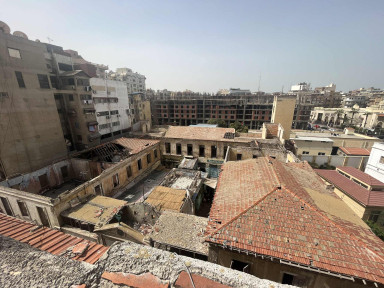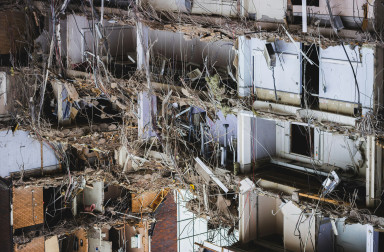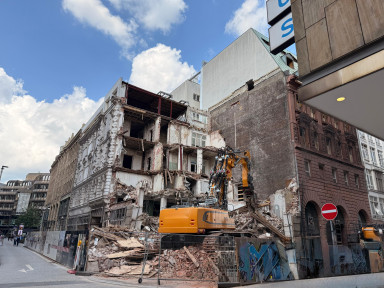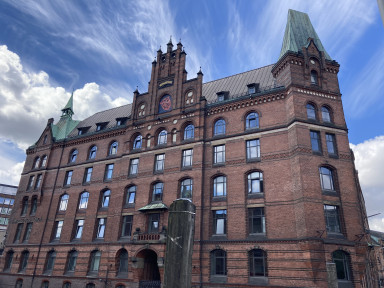Colonial urbanism in transition
Navigating contested ownership for Port Said’s urban future
This research investigates the dynamic relationship between urban governance, demographic shifts, and the colonial built environment in Port Said, Egypt, offering fresh insights on post-colonial urban resilience. Focusing on the challenges of heritage ownership, the study engages directly with community members, local authorities, and professionals. In collaboration with Port Said’s grassroots urban regeneration initiative, the Bazar Abbas Recovery Lab, the project will co-develop, test, and apply its findings, bridging theory, policy, and practice. The research aims to deliver actionable recommendations that advance sustainable, community-driven urban resilience.
- practice-based approaches
- heritage ownership
- multi-level governance
- community participation
- post-colonial geography
Context
In an era characterized by unprecedented urban challenges, cities with rich urban heritages stand at a critical juncture, striving to adapt and thrive. Many of these urban environments are trapped in a cycle of stagnation, where the demands of their residents exceed their capacity. This dynamic is particularly evident in post-colonial and post-conflict contexts, where the potential for a sustainable future exists alongside preserving the historical built environment.1 These dynamics have produced complex urban conditions that demand context-specific policies and strategic approaches, tailored to their distinct historical, socio-economic, and spatial realities.2 Confronting these challenges is no longer optional – it is essential for unlocking urban potential and fostering long-term resilience.3
Thus, this research investigates the lasting effects of colonial rule in Africa on contemporary urban governance, with a particular emphasis on Port Said, Egypt. It explores how colonial and post-colonial urban planning systems have shaped current governance structures and urban management practices. By conducting an in-depth case study of Port Said, the study examines how historical institutional legacies influence the built environment and efforts to address present-day urban challenges.
Aims
This research aims to explore the post-colonial geography of Port Said, with a focus on the local challenges related to property ownership. It investigates the transition towards a more context-sensitive and participatory framework to address Structural imbalances in governance and to improve management strategies. This research also initiates grassroots, context-sensitive investigation into urban governance in Port Said. By combining a literature review, theoretical framing drawing on post-colonial and urban governance theories, and an in-depth investigation of the case study of Bazar Abbas, it aims to identify and analyse these challenges, providing community-driven recommendations. In doing so, the research will not only illuminate a neglected area of scholarship but also contribute actionable strategies to foster adaptive and participatory governance in post-conflict settings. This research positions itself as one of the first efforts to bridge this gap, offering both theoretical contributions and applied outcomes in Port Said.
Research design
The research is grounded in an experimental case study that combines both process-oriented and applied perspectives, ensuring theoretical depth alongside practical relevance. The research employs a longitudinal single-case study design, uses a mixed-methods approach, and integrates both qualitative and quantitative methodologies to develop and assess community-driven policies that support inclusive urban practices and propose alternative models of property ownership. Data collection methods include desktop research, mapping, semi-structured interviews, workshops with the community and experts, and site-specific investigations. The aim is to test, evaluate, and refine the findings to ensure their adaptability and applicability to a variety of urban contexts.
Supervisors:
- Prof. Dr.-Ing. Silke Weidner
- Prof. Dr. Joachim Thiel
- Prof. Dr. Monika Grubbauer




